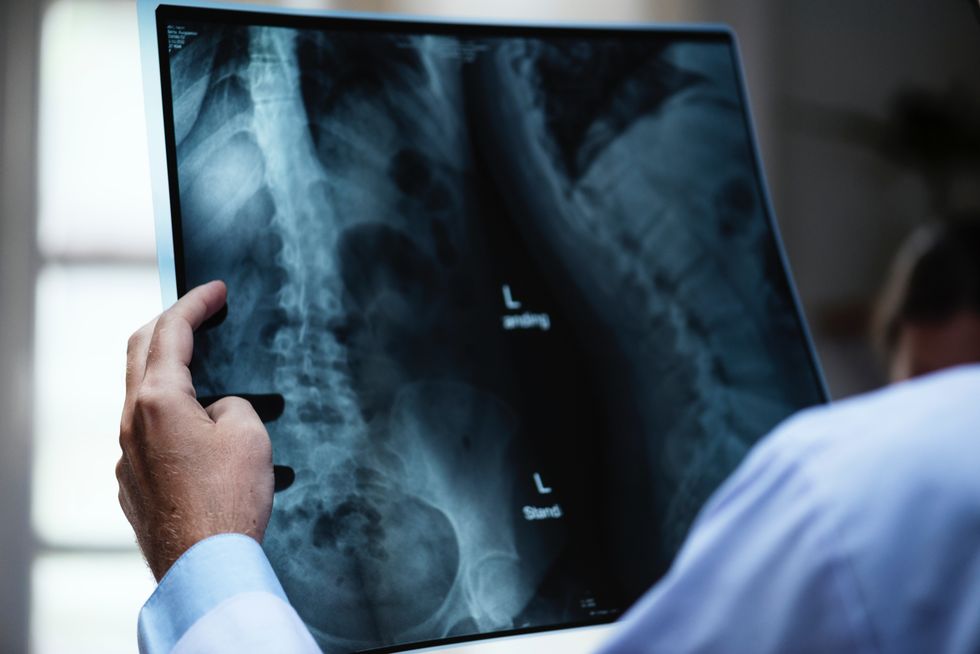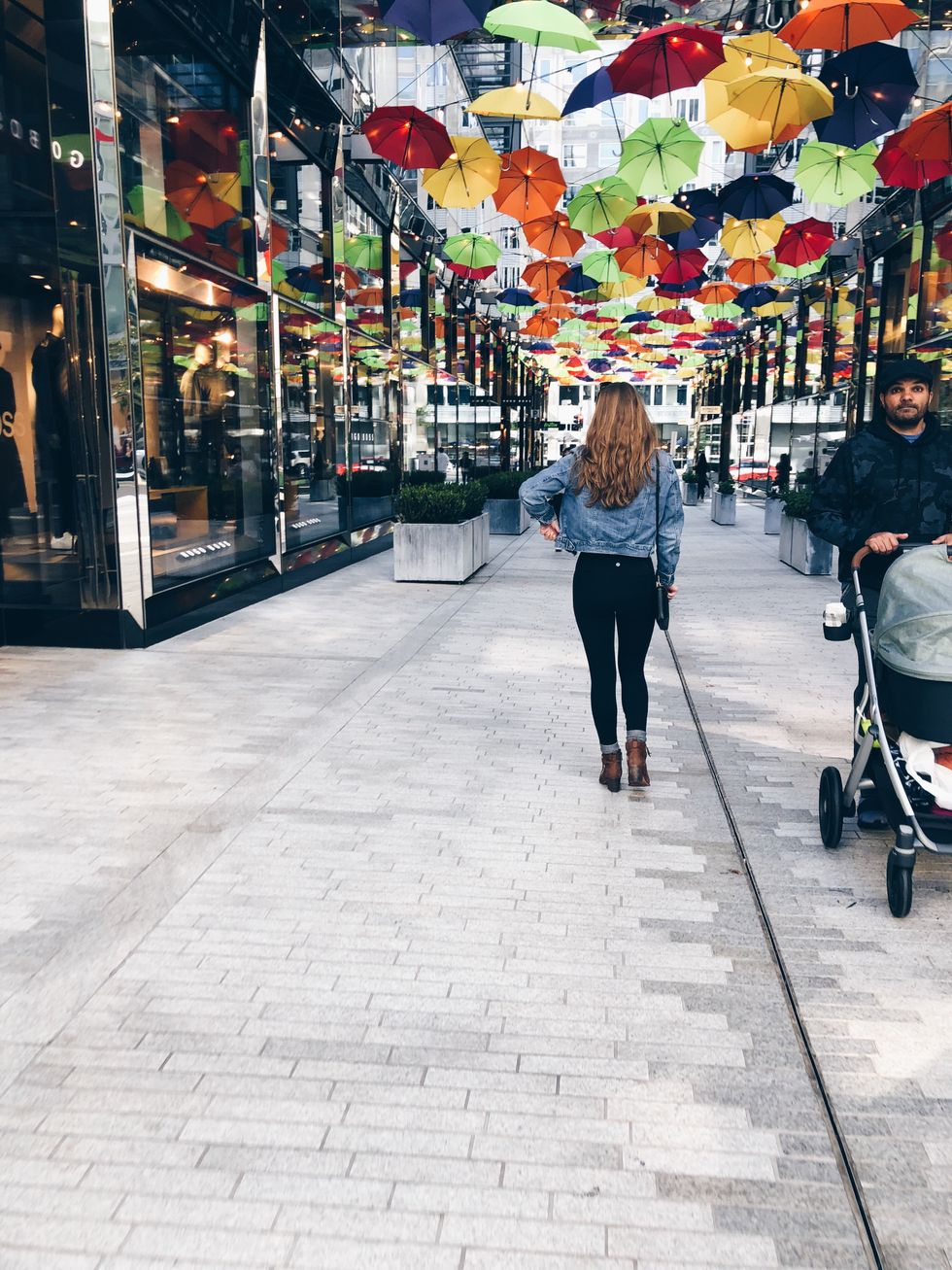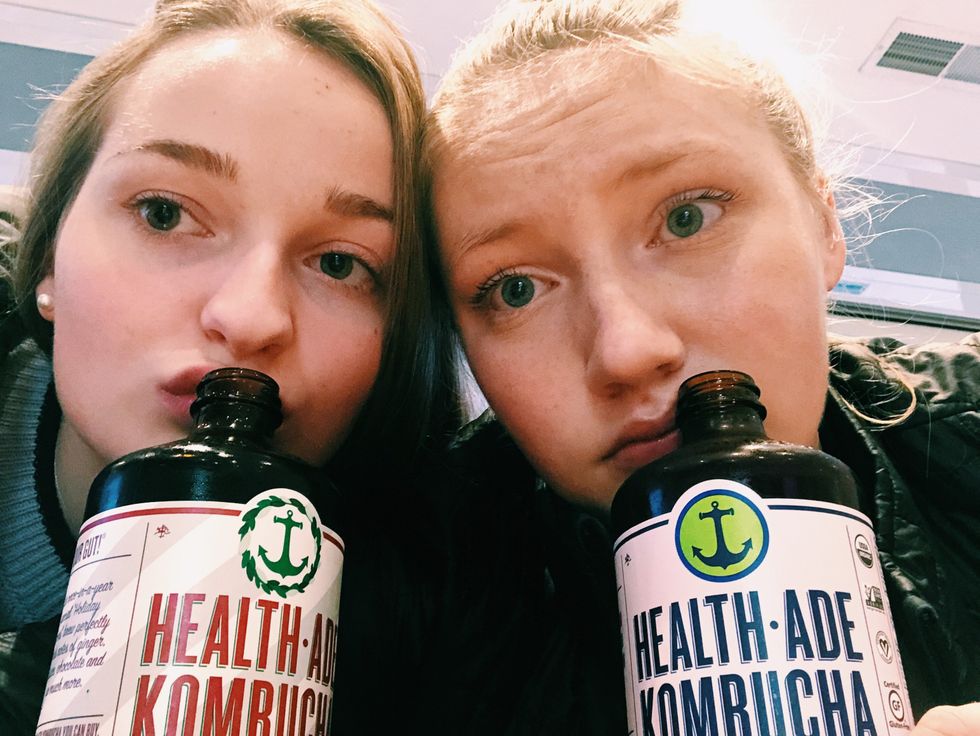Two weeks before Thanksgiving break, I got pneumonia in my left lung. I could sit here and mull over the awful symptoms that I wouldn't wish on my worst enemy, but instead I decided to reflect on my experience. I spent two nights in the ER, and two weeks withdrawn from school. I sincerely hope you can take something away from these 10 lessons that I had to learn the hard way:
1. Don't be afraid to insist that something's not right

After the first night in the ER, they sent me home with "inconclusive test results" after making me do every test you could think of. They essentially loaded me on IV fluids and sent me on my merry way. The next day, I fainted in my lecture. Because of my persistence, they finally ordered a chest x-ray and finally came to the diagnosis.
2. When something feels wrong, do something about it.

There were so many opportunities earlier that week that I could've gotten checked out before it got worse. I could have saved so much time, money, and embarrassment if I went earlier.
3. You need to take care of you rself.

At the end of the day, no one cares if you don't go out one night. If you're feeling under the weather or just like you need a night in for yourself, you have every right to do so. Sure you'll have a severe case of FOMO, but deleting snapchat for a few days helps.
4. YOU come first.

We all know flirting and sex is part of the college lifestyle. Sure, it's fun, but unfortunately, that's how germs spread. You need to put your health first and be completely comfortable in yourself before you let another person in. It can also be destructive to your mental health if you feel objectified after a one-night-stand.
5. Your professors will understand

I know it's counterintuitive, but believe it or not, your professors actually want you to succeed in their classes. I remember in high school if you were out sick, teachers would give you a hard time by not believing you were sick or by not giving you appropriate time to make up assignments. I was shocked when the first thing my professors said was, "What do you think? What would an appropriate extension be for your circumstance?" They understand that you didn't choose to be sick.
6. Your problems are relatively small

Being in the ER exposed me to a lot of people who had it worse than me. It made me count my lucky stars that I just had pneumonia and was fortunate enough to get the care I needed. No matter how sick you are, there will always be someone who has it worse than you.
7. Use GW's student support services

This team of individuals truly saved me. Even while I was home recovering, they were easily accessible via email and served as a middle-man between me and my professors. They explained my circumstance in detail and transferred the hospital's documents, making the process worlds easier.
8. Take probiotics!

Kombucha was my lifesaver as well as probiotic pearls. These contain "good bacteria" that promote a healthy digestive tract and a strong immune system. Kombucha has the same microorganisms through its fermentation process, which also makes it bubbly.
9. Continue the same health habits you had in high school

In high school, I routinely took a daily multivitamin and allergy pill with dinner and exercised once or twice a week. Since I've gotten to college, I've gone to the gym a total of two times and almost completely stopped taking both supplements. And I had to pay for it.
10. The people who go with you and visit you in the ER are your real friends

Yes, it's always nice to receive texts from people checking in to see if you're okay, but it's a whole other ballpark when people actually come to see you. When someone goes out of their way to sit with you while you get poked with a million machines, you know they really care.



















